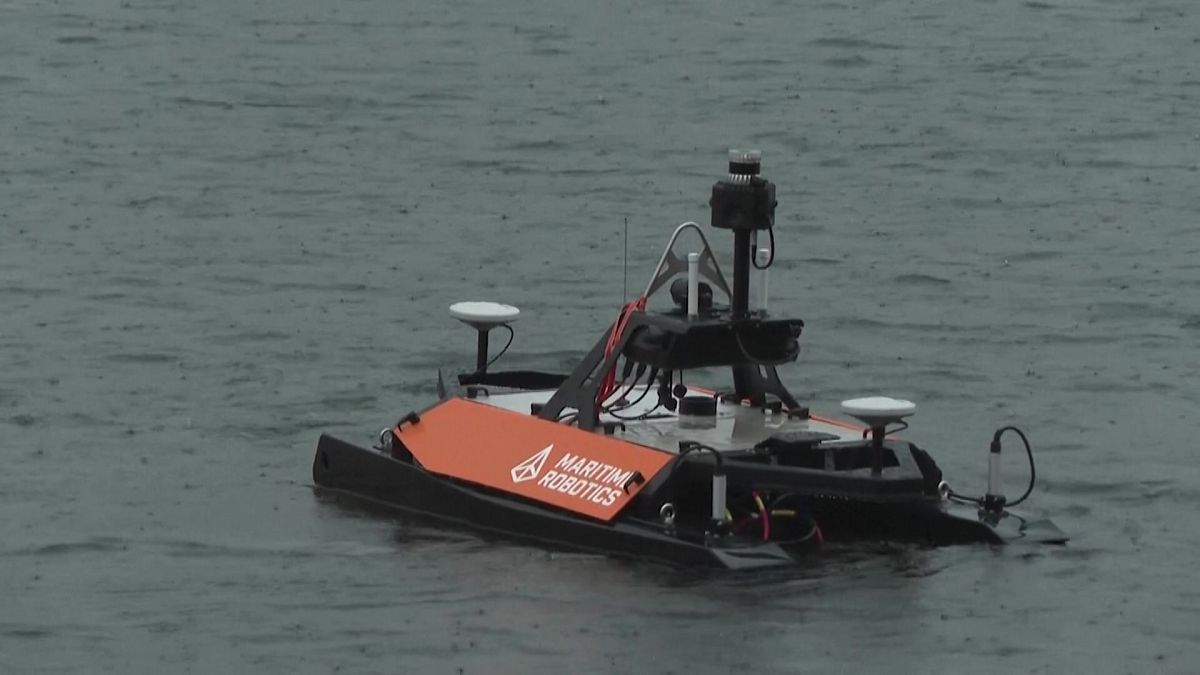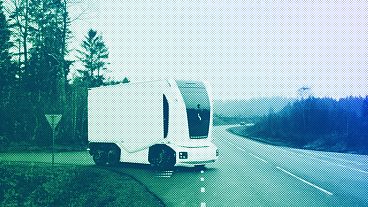Those creating robots for the marine industry say they will create opportunities for humans rather than take them away.
As autonomous robots become more advanced, some in the marine industry say they could replace dangerous and expensive work at sea.
At a biannual ocean technology conference held in London, marine tech insiders gathered to present new high-tech vessels.
Using its onboard sensors, the Norwegian company Maritime Robotics' uncrewed surface vessel "The Otter" manoeuvred across the water at the convention.
Equipped with sonar sensors and GPS mapping, it’s designed to scan the sea floor to collect information that can then be used for environmental mapping and construction projects, such as building piers.
"Previously, you'd have to have a big vessel, and big, chunky equipment to gather this data. You'd have to have a pilot, and more crew, and it's going to be time-consuming, and expensive," said Thomas Rygh, a product manager at Maritime Robotics.
"And we've narrowed that down to a single operator sitting at home behind his desk, steering and mapping all of the data," he added.
Will robots replace human jobs?
The US-based autonomous underwater robot tech company Greensea IQ has been making autonomous vessels for 18 years. It says the demand for them has accelerated over almost two decades.
Its Bayonet series of autonomous robots are designed for the choppy conditions of the “surf zone,” the area of the sea close to the shoreline where waves break.
Some argue these remotely operated machines will create more opportunities for humans rather than take them away.
"The Isaac Asimov concept of robots taking over our jobs and supplanting us in day-to-day activities, it's science fiction," said Ben Kinnaman, Greensea IQ’s CEO.
Kinnaman is confident these machines will mean we get to know the depths of the sea in ways that would be impossible without them.
"Robots aren't going to take our jobs. Robots are creating more jobs, more ways to collect data, and more ways to work in the ocean," Kinnaman said.
"They're just going to give us more ways to understand the ocean, work in the ocean, and combat climate change. They're going to give us ways of doing things that we could never do on our own".
As the size of sensors is getting smaller, the Chinese company Chasing Innovation Technology has developed a remotely operated vessel the size of a small dog.
The company said it could be used alongside divers, rather than to replace them.
"One of our robots, we can attach 20 plus accessories. You have a selection of accessories you can choose from, let's say for scientific research or environmental," said Dennis He, Chasing Innovation Technology’s sales director.
"We've got water samples or sensors for that situation. For search and rescue, you can use sonars and imaging sonars to detect bodies so for various views. I would say not to replace the divers, but to help the divers do their job easier, safer, and more efficiently," He added.
Oceanology International was first launched in the UK in 1969.
This year the three-day conference returned with more than 500 exhibitors and the capacity to welcome over 8,000 attendees on the event floor, as well as on water demos and vessels, its organiser says.
For more on this story, watch the video in the media player above.



